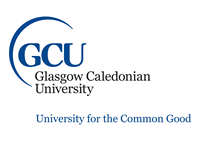About the Project
Key words: Aphasia, Acquired Neurological Disorder, Speech, Language, Therapy, Rehabilitation, Randomised Controlled Trial
Funders: The Tavistock Trust for Aphasia
Project Reference Number: S2016SHLS020
Expected start date: June 2017
Background
The Collaboration of Aphasia Trialists is an international, multidisciplinary network which currently comprises 150 members from across 26 countries. Established in 2013 with the support of the EU Cooperation in Science and Technology the membership includes experts in neurology, stroke rehabilitation, linguistics, neuropsychology, speech and language therapy, neuroscience, anthropology, audiology and statistics. Working in synergy across international boundaries, languages and disciplines this dynamic group support the development of high quality aphasia research which addresses the needs of people with aphasia, their families, health and social care providers and voluntary groups.
The Collaboration of Aphasia Trialists aims to
1. establish a network of leading European multidisciplinary aphasia investigators in rehabilitation, social science, linguistics and language research
2. enhance knowledge, skills and methodology relating to aphasia research. Consensus activities facilitate international agreement in aphasia assessment & diagnosis. Data sharing activities contribute to enhanced prognosis and rehabilitation of aphasia.
3. facilitate the development of high quality aphasia research to address the needs of people with aphasia, their families, health and social care providers and voluntary groups.
The Collaboration is entering a new phase of development (CATs2) following a 3 year grant provided by The Tavistock Trust for Aphasia. This new funding will permit the early achievements of CATs to be further developed, the network to extend its reach to members beyond the EU and in turn, additional gains in aphasia research to be realised. A full-time 3 year PhD studentship will be supported during CATs2 to support the development of the next generation of aphasia trialists.
Project Scope
A recent Cochrane review provided updated evidence of the benefits of SLT for people with aphasia following stroke (as measured by functional communication, reading, comprehension, expressive language, and writing). However many gaps remain in the availability of information and tools to support the rehabilitation and recovery of people with aphasia, understanding of the interventions delivered and their implementation in practice. The exact topic, aims and objectives for this studentship project can be shaped by the applicant however the successful application will contribute to the Collaboration’s over all aims and objectives and will be clearly aligned to one or more of the Collaboration Working Groups (Assessment and Outcomes; Predictors and Prognosis, Effectiveness of interventions; Societal Impact and Reintegration).
We are particularly interested in PhD studentship applications that seek to address topics which will enhance our understanding of
• interventions to support and rehabilitate people with aphasia,
• interventions to support those communicating with people with aphasia,
• outcomes for aphasia research and
• implementation issues.
Specific requirements of the project:
The successful applicant will
• have an excellent understanding of aphasia,
• have an undergraduate degree in a relevant subject area (for example speech and language therapy, linguistics, psychology, neurosciences),
• have an interest in working within a multi-disciplinary, clinical-academic environment and
• demonstrate a desire to conduct the highest quality research that will impact on the care and rehabilitation of people with aphasia.
• be aligned to one or more of the CATs Research Working Groups
1. Assessment and Outcomes
Prof Spyridoula Varlokosta (Lead) [Email Address Removed] or
Dr Valantis Fyndanis (Deputy Lead) [Email Address Removed]
2. Predictors and Prognosis
Prof Anne Charlotte Laska (Lead) [Email Address Removed]
Dr Myzoon Ali (Deputy Lead) [Email Address Removed]
3. Effectiveness of interventions
Dr. Evy Visch-Brink (Lead)
Dr. Tarja Kukkonen (Deputy Lead) [Email Address Removed]
4. Societal Impact and Reintegration
Dr Madeline Cruice (Lead) [Email Address Removed]
Dr Jytte Isaksen(Deputy Lead) [Email Address Removed]
Research Supervisors
This PhD studentship will be based at the Nursing, Midwifery and Allied Health Professions Research Unit (www.nmahpru.ac.uk) in Glasgow Caledonian University. Candidates are encouraged to contact the following supervisors
Prof Marian Brady [Email Address Removed]
Dr Myzoon Ali [Email Address Removed]
before applying. Collaboration with an external supervisor beyond GCU is encouraged, particularly amongst the membership of the Collaboration.
Special application requirements
In addition to the usual application form, please also submit a 2 to 3 page overview or short protocol including Background, Aims, Objectives, Methods of the proposed PhD studentship.
Interviews for those shortlisted are scheduled to take place on Thursday the 4th of May at GCU.
Funding Notes
The studentship of £19,100 per year is for a period of three years, subject to satisfactory progress. The studentship covers the payment of tuition fees (currently £4,100 for UK/EU students or £11,200 for International students) plus an annual stipend of £15,000 for UK/EU students or an annual scholarship of £7,900 for International students.
References
Recent references of relevance
1. Brady MC, Kelly H, Godwin J, Enderby P, Campbell P. Speech and language therapy for aphasia following stroke. Cochrane Database of Systematic Reviews 2016, Issue 6. Art. No.: CD000425. DOI: 10.1002/14651858.CD000425.pub4.
2. Brady MC, Ali M, Fyndanis C, Kambanaros, M, Kleanthes K, Hernández-Sacristán C, Laska A-C, Varloksta S on behalf of the Collaboration of Aphasia Trialists. Time for a step change? Improving the efficiency, relevance, reliability, validity and transparency of aphasia rehabilitation research through core outcome measures, a common data set and improved reporting criteria. Aphasiology. 2014;28(11):1385-1392. doi:10.1080/02687038.2014.930261.

 Continue with Facebook
Continue with Facebook

